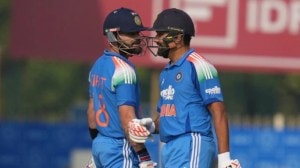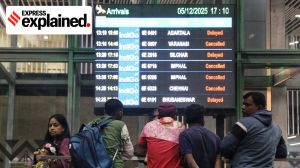India rejects first official draft,says wait for ours
India today rejected the first official draft that emerged after four days of deadlock at the climate change talks.
India today rejected the first official draft that emerged after four days of deadlock at the climate change talks and said that it would release its own draft in concert with Brazil,China,South Africa and African countries tomorrow.
The draft calls for at least 50 per cent reduction in greenhouse gases by 2050 from 1990 levels while leaving open the question of whether the global rise in temperatures needed to be limited to within 2 degrees or 1.5 degrees Centigrade of pre-industrial levels.
The draft text came from the chairperson of the Ad-hoc Working Group on Long-Term Cooperative Action (AWG-LCA),one of the two groups constituted under the Bali Action Plan,whose mandate is to finalise long-term actions by countries,typically by 2050.
The other group on Kyoto Protocol (AWG-KP) is supposed to finalise the emission reduction targets for the rich countries for the period starting 2013.
The text does not indicate any specific year when global emissions should be made to peak,saying it should be done as soon as possible,recognizing that the time frame for peaking will be longer in the developing countries and bearing in mind that the social and economic development and poverty eradication are the first and overriding priorities of developing countries.
New Delhis objection is that this is not a negotiated text and the mention of time-frame for peaking of emissions is objectionable.
In a stark reminder of deep divisions,the rich nations also immediately expressed their displeasure with the provisions in todays draft. The European Union said it was concerned with some of the provisions,while the US Special Envoy for Climate Change Todd Stern said the draft was imbalanced and failed to put any responsibility on developing countries.
Neither of the two drafts the second one has been prepared by the Ad-hoc Working Group on Kyoto Protocol or AWG-KP resolves key issues like emission targets for the rich countries and includes a range of multiple options instead (see box).
The draft by AWG-KP only deals with emission reduction targets for the rich countries for a period beyond 2012.
Most of the other countries reacted cautiously to the drafts. Sources in the Indian camp said the provisions on providing long-term finance in the draft were inadequate and the multitude of options on emissions targets for the rich countries was likely to be very difficult to resolve.
The draft texts have been circulated to all negotiating teams. In case there is no consensus over the figures contained in them,they will be put up to the Environment Ministers who are reaching Copenhagen tomorrow. Indias Environment Minister Jairam Ramesh is already here,and held lengthy consultations with the negotiating team. He was briefed in detail about the two drafts,and on the negotiations that have taken place since the start of the conference on Monday.
The emergence of the two draft texts through the official channel is expected to put a halt to the multitude of draft agreements floating around in the conference,each prepared and supported by a group of countries but opposed by others.
- 01
- 02
- 03
- 04
- 05































